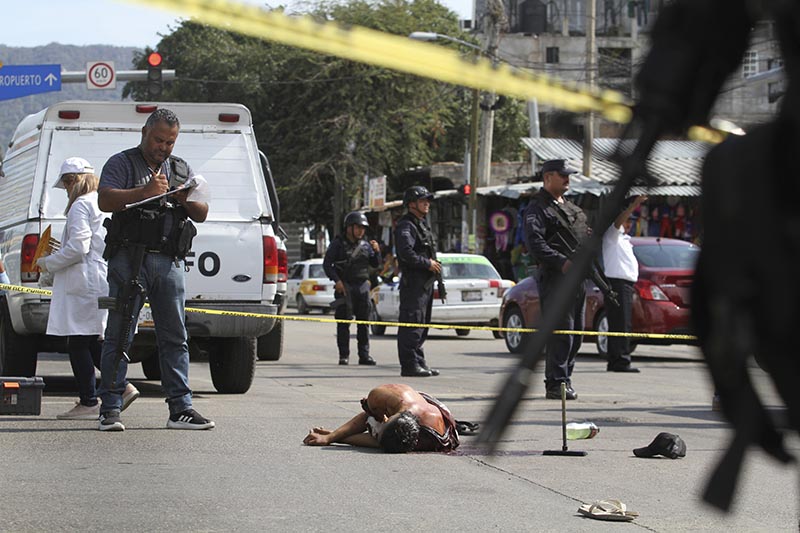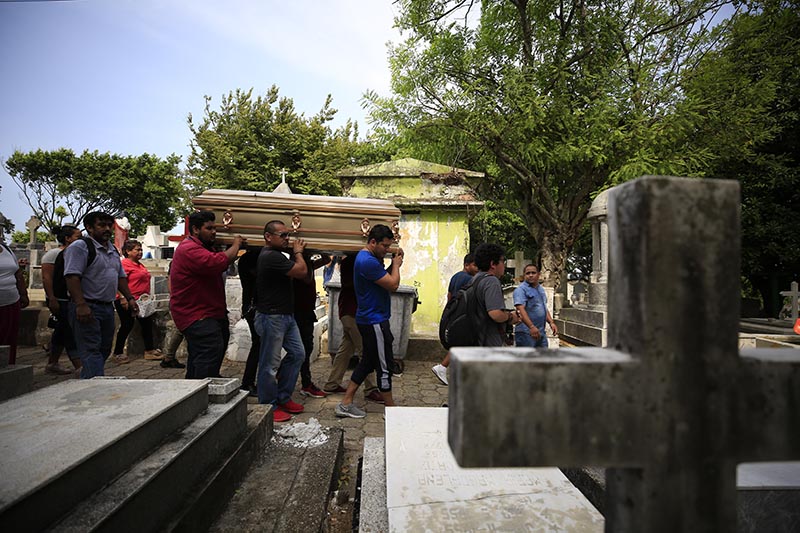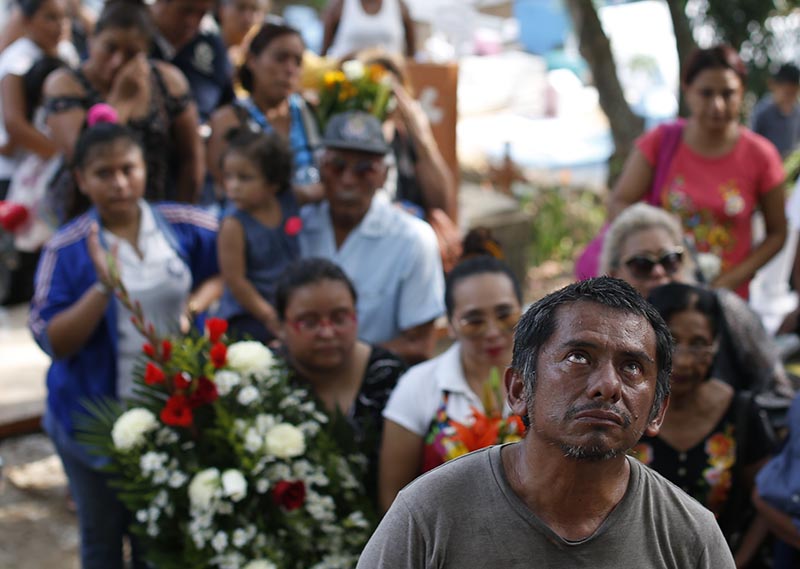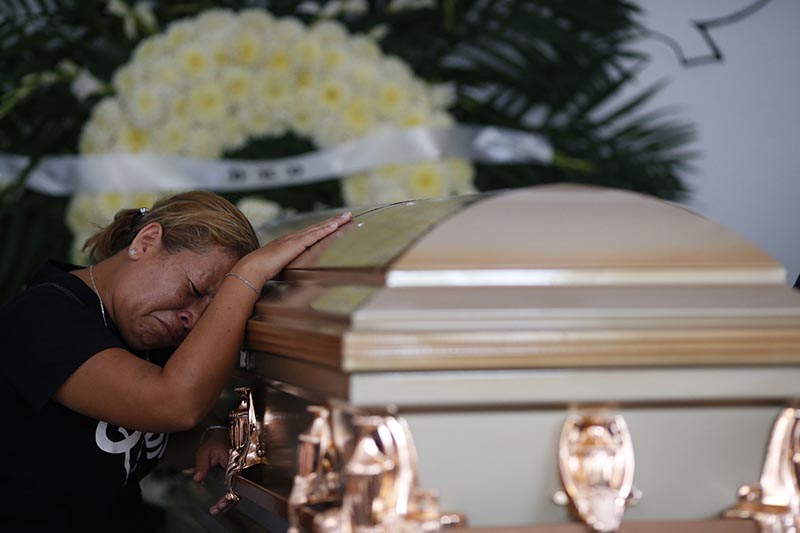Mexico's new drug war may be worse than old one
COATZACOALCOS, MEXICO: Mexico's drug war appears to be back — and it may be worse this time around than in the bloody years of the government's 2006-2012 offensive against drug cartels.
Back then, the worst of the violence was confined to a few cities. Now it is spread out throughout the country. Once it was not uncommon for gangs to kill adults but leave children unharmed. Now, the killing of children alongside their parents has become all too frequent.



Perhaps the most disconcerting change: Bloody cartel violence outraged Mexicans and captured international attention for the drug war, which saw 27,000 homicides during its peak in 2011. Today, even though the number of Mexico's homicides soared to near 35,000 last year, the bloodshed seems to draw less attention and indignation.
It has all left many Mexicans wondering which way to turn.
That was evident this week in Coatzacoalcos, an oil industry city in the Gulf coast state of Veracruz where residents say gangs have been fighting over turf and extorting business owners with threats of violence. Late Tuesday, suspected members of the Jalisco cartel showed up at the Caballo Blanco nightclub, blocked its exits and set a fire that killed 28 people trapped inside, apparently because the owner had either refused to make extortion payments or sold drugs from another gang.
Vanessa Galindo Blas lost her common-law husband, Erick Hernandez Enriquez, to the blaze. Both were natives of Coatzacoalcos, but had been discussing moving away.



In 2010, gunmen burst into a party of high school students in Ciudad Juarez's Villas de Salvarcar neighborhood, killing 15 in what appeared to have been a case of mistaken identity. The bloodbath provoked large, angry street protests and a visit by an apologetic President Felipe Calderon.
This year, in April, gunmen burst into a party in Minatitlan, near Coatzacoalcos, and killed 14 people. Days later, a few dozen people held a subdued peace march.
"It's politics as usual, nothing happened. This should generate generalized indignation," against cartels and government leaders alike, Hope said.
He attributes the muted response to new President Andres Manuel Lopez Obrador's high approval ratings, topping 70% in some polls nine months into his term. Such ratings "tend to intimidate expressions of indignation," Hope said.
Many Mexicans also are willing to give Lopez Obrador the benefit of the doubt as even the president acknowledges that violent crime is the most serious challenge he faces. Lopez Obrador insists his go-slow policies of reducing youth unemployment will eventually solve the root causes of the problem better than declaring another frontal offensive against drug cartels.
Carlos Angel Ortiz is one of those who doesn't fault Lopez Obrador.
"It is like the president says, 'Only the people can save the people," Ortiz said as he made plans to bury his niece, Xóchitl Irineo Gomez, a dancer at the nightclub who died of smoke inhalation, leaving behind a son and a daughter ages 7 and 3.
"We have to look out for each other, and report crimes more," Ortiz said.
The poor provide Lopez Obrador's base, and it is that group who suffers the most from crime. Irineo Gomez was the sole support of not only her children, but her elderly parents. Erick Hernandez Enriquez left little behind for his family aside from a modest, three-room cinderblock house.
"There are a lot of empty houses in Coatzacoalcos, a lot of people have left," said Maria Fabiola Davila, a civic activist. "Those who can afford it move to another country."
READ ALSO:






